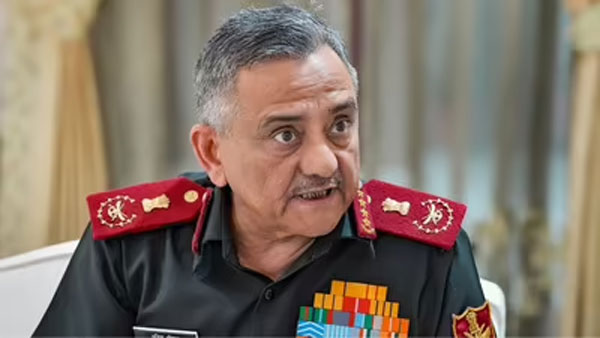Daijiworld Media Network - New Delhi
New Delhi/Singapore, Jun 2: Asia’s premier security forum, the Shangri-La Dialogue, witnessed a sharp exchange between the military leaderships of India and Pakistan, amid rising tensions following the recent Pahalgam terror attack.
India’s Chief of Defence Staff (CDS), General Anil Chauhan, delivered a stern message behind closed doors, making it clear that New Delhi’s patience with cross-border terrorism has worn thin. Referring to the recent Operation Sindoor—India’s cross-border precision strikes on terror launchpads in Pakistan-occupied Kashmir and across the border—General Chauhan signalled a decisive policy shift.
“A new red line has been drawn. The era of strategic restraint in the face of terrorism is over,” General Chauhan reportedly declared.

While General Chauhan stopped short of naming Pakistan directly, his remarks left little doubt about whom he was referring to. “We have endured over two decades of proxy war. The toll on civilian lives, our soldiers, and our economy is unacceptable,” he added.
Sources at the event described Chauhan’s comments as a direct warning that India’s recent military action was not just a tactical retaliation but a strategic signal of a new posture.
Meanwhile, Pakistan’s Chairman of the Joint Chiefs of Staff Committee, General Sahir Shamshad Mirza, repeated Islamabad’s familiar line—calling for “conflict resolution” over Kashmir and warning of the risks of escalation. “The absence of sustained dialogue could lead to uncontrollable conflict,” General Mirza said, reiterating Pakistan’s call for a settlement in line with UN resolutions and the will of the Kashmiri people.
Indian defence officials, however, dismissed Mirza’s remarks as “predictable deflection.” “While Pakistan lectures on peace, it shelters those who orchestrate mass killings like Pahalgam,” an Indian official said, referring to the April 22 terror attack in Jammu and Kashmir that killed 26 tourists.
India launched Operation Sindoor on May 7 in response to the Pahalgam attack. The four-day operation targeted at least nine terror launchpads and concluded on May 10. India briefed key nations—including the U.S., U.K., and UAE—on the objectives and outcomes of the operation.
General Chauhan emphasized that the strikes were “limited, lawful, and targeted,” aimed at ensuring long-term deterrence. He warned that any failure by Pakistan to learn from these actions could invite even harsher consequences in the future.
Security analysts at the summit noted that while Pakistan sought to internationalize the Kashmir issue, India projected itself as a responsible power enforcing firm red lines against terrorism.